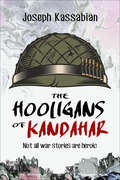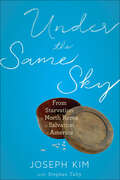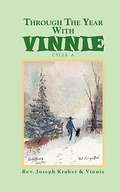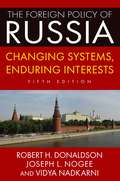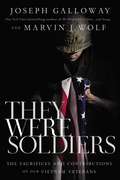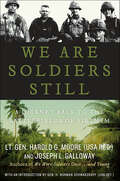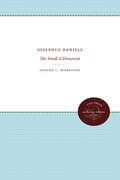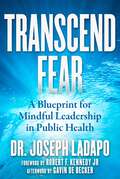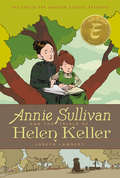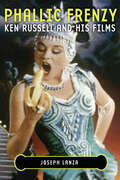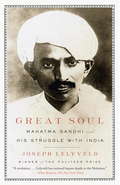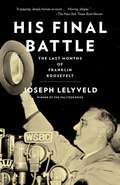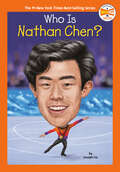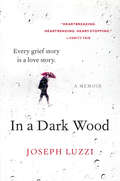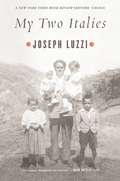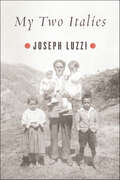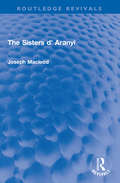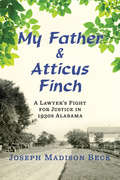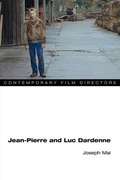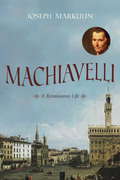- Table View
- List View
The Hooligans of Kandahar: Not All War Stories Are Heroic
by Joseph KassabianAn Army combat veteran’s personal account of his time in service during the Afghan War with an unconventional squad.In the birthplace of the Taliban, some men lose their lives, some lose their sanity, and others their humanity. They are the Hooligans . . .During the peak of the Afghanistan War, a group of soldiers is dropped by helicopter into the remote mountains outside of Kandahar City. Mismanaged and overlooked by command, the squad must rely on each other to survive.Their mission is to train and advise the Afghan National Police and help rebuild the country of Afghanistan. The Afghan Police station they are assigned to live in is dangerous health hazard. Many of the police officers they are supposed to train are Taliban sleeper agents or the family of Taliban fighters. The ones that aren’t are often addicted to drugs, illiterate, or smuggling child slaves.The squad’s leader is Slim, a staff sergeant in his late twenties with so many mental health issues that his insanity is his most dominant personality trait. An alcoholic with a penchant for violent outbursts against both his own soldiers and the Afghans, he is more comfortable at war than at home.Joseph Kassabian is the youngest and most junior fire team leader in the squad. He’s charged with leading a team of soldiers not even old enough to drink. He himself is only 21 years old. As a combat veteran from previous deployments with four years in the Army, he assumes he has seen it all. But he has no idea how bad things can get in war-torn Kandahar . . .Humorous and grim yet honest, The Hooligans of Kandahar is Jarhead and The Hurt Locker meets I Hope They Serve Beer in Hell and Fear and Loathing in Las Vegas.Winner of the 2017 eLit Awards Gold Medal in Current EventsPraise for The Hooligans of Kandahar“A frighteningly realistic snapshot of the current war. Mr. Kassabian paints a deeply moving portrait of the struggles faced by men and women in uniform caused by our current foreign policy (or lack thereof), while bringing us along for a horrific, often . . . hilarious ride through the life of an American soldier.” —William Fulton, author of the critically acclaimed book The Blood of Patriots, Hill vets 100 awardee, SME/Consultant Domestic Terrorism
À quand l'Afrique?: Entretien Avec René Holenstein
by Joseph Ki-ZerboA quand l'Afrique ? Voilà bien une question que nous préférons éviter, tant l'Afrique semble sans avenir. Mais Joseph Ki-Zerbo, historien et homme d'action burkinabé, ne peut et ne veut occulter cette question. Alors, au cours de ce long entretien qui, par certains côtés, retrace le parcours d'une vie, il dresse un portrait vivant, saisissant, de l'Afrique au temps de la mondialisation. Joseph Ki-Zerbo a largement contribué à doter l'Afrique d'une histoire propre, une histoire qui soit autre que celle écrite par le colonisateur. Pour lui, l'Afrique doit conquérir son identité, fière de sa contribution à l'aventure humaine. « Sans identité, dit-il, nous sommes un objet de l'histoire, un instrument utilisé par les autres. Un ustensile. » Un livre passionnant, nourri d'une Afrique vécue et étudiée pendant des décennies, riche de réflexions profondes d'un historien sur le rôle de son métier pour l'action concrète des hommes. Un livre engagé : N'an lara, an sara. (Si nous nous couchons, nous sommes morts.)
Under The Same Sky: From Starvation in North Korea to Salvation in America
by Stephan Talty Joseph KimIn this “courageous and inspiring memoir,” a young man recounts his escape from an impoverished childhood and adolescence in North Korea (Kirkus Reviews).Inside the hidden and mysterious world of North Korea, Joseph Kim lived a young boy’s normal life until he was five. Then disaster struck: the first wave of the Great Famine, a long, terrible ordeal that killed millions, including his father, and sent others, like his mother and only sister, on desperate escape routes into China. Alone on the streets, Joseph learned to beg and steal until finally, in desperation, he too crossed a frozen river to escape to China.A kindly Christian woman took him in and kept him hidden from the authorities. And through an underground network of activists, he was spirited to the American consulate, becoming one of only a very few North Koreans to be brought to the United States as refugees. Joseph knew no English and had never been a good student. Yet the kindness of his foster family changed his life. He became a dedicated student, mastered English, and made it to college, where he is now thriving thanks to his faith and inner strength. Under the Same Sky is an unforgettable story of suffering and redemption.
Through the Year with Vinnie
by Joseph Kraker Vinnie[from the back cover] "Rev. Joseph Kraker is the pastor of St. Vincent Church in Akron, Ohio. He was ordained a priest in 1964 and served as an associate pastor at St. Jude Parish in Elyria, Ohio, Director of communications for the diocese of Cleveland, and pastor of St. Timothy Parish in Garfield Heights, Ohio before coming to St. Vincent in 1994 Vinnie came to St. Vincent Parish in 1998. His previous history is largely unknown, as is his precise pedigree. He arrived at the tender age of six weeks, and has since become an integral part of the parish household. A quick learner, Vinnie soon learned the duties of a church dog, and enjoys all the attention given to him as such." whimsical reflections on the gospels in conversations between Father Joseph and Vinnie will be helpful for personal prayer as well as for group sharing of every kind. Each of about 60 segments dated according to the church calendar begins with scripture based thoughts about the joys and responsibilities of being Christian. Next the boss describes an activity with his Church Dog with amusing and insightful accounts of their talks as they take walks, go on drives, experience the joys of the food bowl and treats, the tasks of representing the church and the rewards of leisure time together. Last are three questions to inspire further thought on the chapter's topic. Comments
The Foreign Policy of Russia: Changing Systems, Enduring Interests, 2014
by Robert H Donaldson Joseph L NogeeNow fully updated, this widely respected text traces the lineage and development of Russian foreign policy with the insight that comes from historical perspective. The fifth edition incorporates new and fully updated coverage of issues including relations with the major powers and with other post-communist states, international security issues including arms control issues and grounds for sanctions and intervention, and domestic and regional issues related to natural resource politics, human rights, Islamism and terrorism.perspective. Chronologically organized chapters highlight the continuities of Russias behavior in the world since tsarist times as well as the major sources of change and variability over the revolutionary period, wartime alliances and cold war, dtente, the Soviet collapse, and the first post-communist decades. The fifth edition incorporates new and fully updated coverage of issues including relations with the major powers and with other post-communist states, international security issues including arms control issues and grounds for sanctions and intervention, and domestic and regional issues related to natural resource politics, human rights, Islamism and terrorism. New coauthor Vidya Nadkarni strengthens the books coverage of issues related to Asia. The basic framework used in the book is a modified realism that stresses the balance of power and the importance of national interest, and identifies several factors (both internal and external) that condition Russian policy. The interpretations are original and based on a mix of primary and secondary sources.
They Were Soldiers: The Sacrifices and Contributions of Our Vietnam Veterans
by Marvin J. Wolf Joseph L. GallowayThey Were Soldiers showcases the inspiring true stories of 49 Vietnam veterans who returned home from the "lost war" to enrich America's present and future. In this groundbreaking new book, Joseph L. Galloway, distinguished war correspondent and New York Times bestselling author of We Were Soldiers Once . . . and Young, and Marvin J. Wolf, Vietnam veteran and award-winning author, reveal the private lives of those who returned from Vietnam to make astonishing contributions in science, medicine, business, and other arenas, and change America for the better.For decades, the soldiers who served in Vietnam were shunned by the American public and ignored by their government. Many were vilified or had their struggles to reintegrate into society magnified by distorted depictions of veterans as dangerous or demented. Even today, Vietnam veterans have not received their due. Until now. These profiles are touching and courageous, and often startling.They include veterans both known and unknown, including:Frederick Wallace (&“Fred&”) Smith, CEO and founder of FedExMarshall Carter, chairman of the New York Stock ExchangeJustice Eileen Moore, appellate judge who also serves as a mentor in California's Combat Veterans CourtRichard Armitage, former deputy secretary of state under Colin PowellGuion &“Guy&” Bluford Jr., first African American in space Engrossing, moving, and eye-opening, They Were Soldiers is a magnificent tribute that gives long overdue honor and recognition to the soldiers of this "forgotten generation."
We Are Soldiers Still: A Journey Back to the Battlefields of Vietnam
by Joseph L. Galloway Lt. Gen. Harold G. Moore“Powerful. . . . A candid, highly informative, and heartfelt tale of forgiveness between former fierce enemies in the Vietnam War.” —St. Petersburg TimesThe #1 New York Times bestseller We Were Soldiers Once . . . and Young brought to life one of the most pivotal and heartbreaking battles of the Vietnam War. In this powerful sequel, Lt. Gen Harold G. Moore and Joseph L. Galloway bring us up to date on the cadre of soldiers introduced in their first memoir.Returning to Vietnam’s Ia Drang Valley more than four decades after the battle, Moore and Galloway renew their relationships with ten American veterans of the fabled conflict—and with former adversaries—exploring how the war changed them all, as well as their two countries. We Are Soldiers Still is an emotional journey back to hallowed ground, putting a human face on warfare as the authors reflect on war’s devastating cost. The book includes an Introduction by Gen H. Norman Schwarzkopf.
Josephus Daniels: The Small-d Democrat
by Joseph L. MorrisonThis first full-length biography documents the strong family ties and loyalties that shaped Daniels's character and demonstrates the extent to which his religion bred not only the merry puritanism but also the moral courage that figured in his career and in his personal life. There is ample evidence to show that in spite of dire forecasts of disaster, he succeeded where his critics insisted that he must fail. His was a triumph of temperament over inexperience, of character over qualifications.Originally published in 1966.A UNC Press Enduring Edition -- UNC Press Enduring Editions use the latest in digital technology to make available again books from our distinguished backlist that were previously out of print. These editions are published unaltered from the original, and are presented in affordable paperback formats, bringing readers both historical and cultural value.
Transcend Fear: A Blueprint for Mindful Leadership in Public Health
by Joseph LadapoA fascinating look into the life of a state surgeon general and how his public health decisions provide a blueprint for fearless leadership and better national health policy. Florida Surgeon General Joseph Ladapo shares the inspiring story of how he came to be who he is. After experiencing abuse as a child, Dr. Ladapo was incapable of connecting emotionally with other people. He was dissociated from virtually everything in his life and numbly powered through college, medical school, and residency to become a doctor and university professor. It wasn&’t until he fell in love with his wife that he was forced to come face-to-face with the enormous emotional and spiritual disruption caused by his deeply buried trauma. Just before the pandemic, Dr. Ladapo worked with a former Navy Seal who used a mix of ancient disciplines and modern techniques to help free him from this trauma—and subsequently, his fear. When the pandemic hit Los Angeles, Dr. Ladapo found himself well-equipped to observe the panic and fear that overtook the hospital where he was working—and the country—without becoming part of it. From this state of emotional clarity, he recognized that it was too late to take any public health measures that would significantly change the deadliness of the pandemic, and that it was more important to face the challenge squarely and focus on building capacity to treat patients without destroying society in the process. His message that panic, fear, and politics were fueling harmful decisions—like disavowing the possibility that hydroxychloroquine could effectively treat COVID-19—made him the target of fierce criticism. In Transcend Fear: A Blueprint for Mindful Leadership in Public Health, Dr. Ladapo describes his views on public health restrictions, early home treatment, and COVID-19 vaccines, along with how Florida officials made public health decisions that set it apart from other states—and nations. Based on this experience, Dr. Ladapo explains how states can make better public health decisions in the future, recommending that health officials obtain training in decision analysis and expand their consciousness of how fear can shape perspectives and create dangerous outcomes—particularly during a crisis.
Annie Sullivan and the Trials of Helen Keller (The Center for Cartoon Studies Presents)
by Joseph LambertHelen Keller lost her ability to see and hear before she turned two years old. But in her lifetime, she learned to ride horseback and dance the foxtrot. She graduated from Radcliffe. She became a world famous speaker and author. She befriended Mark Twain, Charlie Chaplin, and Alexander Graham Bell. And above all, she revolutionized public perception and treatment of the blind and the deaf. The catalyst for this remarkable life's journey was Annie Sullivan, a young woman who was herself visually impaired. Hired as a tutor when Helen was six years old, Annie broke down the barriers between Helen and the wider world, becoming a fiercely devoted friend and lifelong companion in the process. In Annie Sullivan and the Trials of Helen Keller, author and illustrator Joseph Lambert examines the powerful bond between teacher and pupil, forged through the intense frustrations and revelations of Helen's early education. The result is an inspiring, emotional, and wholly original take on the story of these two great Americans.
Phallic Frenzy: Ken Russell and His Films
by Joseph LanzaA biography of director Ken Russell that details the wild ideas, surreal moments, personal faith, and cavalcade of colorful personalities surrounding this eccentric filmmaker--on and off the set. Best known for the acclaimed movies Altered States, The Devils, Gothic, The Music Lovers, Tommy, and Women in Love, Russell redefined cinema in the 1960s, 70s and 80s, working with magnetic actors like Jack Nicholson, Michael Caine, Ann-Margret, William Hurt, Gabriel Byrne, and Vanessa Redgrave. Moments of Russell's career are highlighted in this intimate biography, including how creative differences between Russell and producer Robert Stigwood stopped production of a movie version of Evita, how he creatively staged the love duet between Faust and Helen over a bowl of pasta in the opera Mephistopheles, and how Alan Bates and Oliver Reed compared their penis size for the nude wrestling scene in Women in Love.
Great Soul: Mahatma Gandhi and His Struggle with India
by Joseph LelyveldA highly original, stirring book on Mahatma Gandhi that deepens our sense of his achievements and disappointments--his success in seizing India's imagination and shaping its independence struggle as a mass movement, his recognition late in life that few of his followers paid more than lip service to his ambitious goals of social justice for the country's minorities, outcasts, and rural poor.Pulitzer Prize-winner Joseph Lelyveld shows in vivid, unmatched detail how Gandhi's sense of mission, social values, and philosophy of nonviolent resistance were shaped on another subcontinent--during two decades in South Africa--and then tested by an India that quickly learned to revere him as a Mahatma, or "Great Soul," while following him only a small part of the way to the social transformation he envisioned. The man himself emerges as one of history's most remarkable self-creations, a prosperous lawyer who became an ascetic in a loincloth wholly dedicated to political and social action. Lelyveld leads us step-by-step through the heroic--and tragic--last months of this selfless leader's long campaign when his nonviolent efforts culminated in the partition of India, the creation of Pakistan, and a bloodbath of ethnic cleansing that ended only with his own assassination. India and its politicians were ready to place Gandhi on a pedestal as "Father of the Nation" but were less inclined to embrace his teachings. Muslim support, crucial in his rise to leadership, soon waned, and the oppressed untouchables--for whom Gandhi spoke to Hindus as a whole--produced their own leaders. Here is a vital, brilliant reconsideration of Gandhi's extraordinary struggles on two continents, of his fierce but, finally, unfulfilled hopes, and of his ever-evolving legacy, which more than six decades after his death still ensures his place as India's social conscience--and not just India's.
His Final Battle: The Last Months of Franklin Roosevelt
by Joseph Lelyveld"By far the most enigmatic leading figure" of World War II. That's how the British military historian John Keegan described Franklin D. Roosevelt, who frequently left his contemporaries guessing, never more so than at the end of his life. Here, in a hugely insightful account, a prizewinning author and journalist untangles the narrative threads of Roosevelt's final months, showing how he juggled the strategic, political, and personal choices he faced as the war, his presidency, and his life raced in tandem to their climax. The story has been told piecemeal but never like this, with a close focus on Roosevelt himself and his hopes for a stable international order after the war, and how these led him into a prolonged courtship of Joseph Stalin, the Soviet dictator, involving secret, arduous journeys to Tehran and the Crimea. In between, as the war entered its final phase, came the thunderbolt of a dire medical diagnosis, raising urgent questions about the ability of the longest-serving president to stand for a fourth term at a time when he had little choice. Neither his family nor top figures in his administration were informed of his diagnosis, let alone the public or his closest ally, Winston Churchill. With D-Day looming, Roosevelt took a month off on a plantation in the south where he was examined daily by a navy cardiologist, then waited two more months before finally announcing, on the eve of his party's convention, that he'd be a candidate. A political grand master still, he manipulated the selection of a new running mate, with an eye to a possible succession, displaying some of his old vigor and wit in a winning campaign. With precision and compassion, Joseph Lelyveld examines the choices Roosevelt faced, shining new light on his state of mind, preoccupations, and motives, both as leader of the wartime alliance and in his personal life. Confronting his own mortality, Roosevelt operated in the belief that he had a duty to see the war through to the end, telling himself he could always resign if he found he couldn't carry on. Lelyveld delivers an incisive portrait of this deliberately inscrutable man, a consummate leader to the very last. From the Hardcover edition.
His Final Battle: The Last Months of Franklin Roosevelt
by Joseph LelyveldA New York Times 2016 Notable Book"By far the most enigmatic leading figure" of World War II. That's how the British military historian John Keegan described Franklin D. Roosevelt, who frequently left his contemporaries guessing, never more so than at the end of his life. Here, in a hugely insightful account, a prizewinning author and journalist untangles the narrative threads of Roosevelt's final months, showing how he juggled the strategic, political, and personal choices he faced as the war, his presidency, and his life raced in tandem to their climax. The story has been told piecemeal but never like this, with a close focus on Roosevelt himself and his hopes for a stable international order after the war, and how these led him into a prolonged courtship of Joseph Stalin, the Soviet dictator, involving secret, arduous journeys to Tehran and the Crimea. In between, as the war entered its final phase, came the thunderbolt of a dire medical diagnosis, raising urgent questions about the ability of the longest-serving president to stand for a fourth term at a time when he had little choice. Neither his family nor top figures in his administration were informed of his diagnosis, let alone the public or his closest ally, Winston Churchill. With D-Day looming, Roosevelt took a month off on a plantation in the south where he was examined daily by a navy cardiologist, then waited two more months before finally announcing, on the eve of his party's convention, that he'd be a candidate. A political grand master still, he manipulated the selection of a new running mate, with an eye to a possible succession, displaying some of his old vigor and wit in a winning campaign. With precision and compassion, Joseph Lelyveld examines the choices Roosevelt faced, shining new light on his state of mind, preoccupations, and motives, both as leader of the wartime alliance and in his personal life. Confronting his own mortality, Roosevelt operated in the belief that he had a duty to see the war through to the end, telling himself he could always resign if he found he couldn't carry on. Lelyveld delivers an incisive portrait of this deliberately inscrutable man, a consummate leader to the very last.
His Final Battle: The Last Months of Franklin Roosevelt
by Joseph LelyveldA New York Times 2016 Notable Book“By far the most enigmatic leading figure” of World War II. That’s how the British military historian John Keegan described Franklin D. Roosevelt, who frequently left his contemporaries guessing, never more so than at the end of his life. Here, in a hugely insightful account, a prizewinning author and journalist untangles the narrative threads of Roosevelt’s final months, showing how he juggled the strategic, political, and personal choices he faced as the war, his presidency, and his life raced in tandem to their climax. The story has been told piecemeal but never like this, with a close focus on Roosevelt himself and his hopes for a stable international order after the war, and how these led him into a prolonged courtship of Joseph Stalin, the Soviet dictator, involving secret, arduous journeys to Tehran and the Crimea. In between, as the war entered its final phase, came the thunderbolt of a dire medical diagnosis, raising urgent questions about the ability of the longest-serving president to stand for a fourth term at a time when he had little choice. Neither his family nor top figures in his administration were informed of his diagnosis, let alone the public or his closest ally, Winston Churchill. With D-Day looming, Roosevelt took a month off on a plantation in the south where he was examined daily by a navy cardiologist, then waited two more months before finally announcing, on the eve of his party’s convention, that he’d be a candidate. A political grand master still, he manipulated the selection of a new running mate, with an eye to a possible succession, displaying some of his old vigor and wit in a winning campaign. With precision and compassion, Joseph Lelyveld examines the choices Roosevelt faced, shining new light on his state of mind, preoccupations, and motives, both as leader of the wartime alliance and in his personal life. Confronting his own mortality, Roosevelt operated in the belief that he had a duty to see the war through to the end, telling himself he could always resign if he found he couldn’t carry on. Lelyveld delivers an incisive portrait of this deliberately inscrutable man, a consummate leader to the very last.
Who Is Nathan Chen? (Who HQ Now)
by Who HQ Joseph LiuLearn about American figure skater Nathan Chen's Olympic journey to gold in this exciting title in the Who HQ Now series featuring newsmakers and trending topics.In 2022, Nathan Chen dazzled the world when he won the gold medal in men's figure skating to Elton John's "Rocketman" at the Winter Olympics in Beijing, China. Though this was his first Olympic gold, Nathan was not new to big victories. He was already a six-time US national champion and had already won the World Figure Skating Championship three times! Nicknamed the "Quad King," Nathan is known for his thrilling quadruple jumps on the ice and is considered one of the greatest male figure skaters of all time. Learn all about Nathan's life from his childhood hobbies of ballet and gymnastics to his recent graduation from Yale University in this inspiring book for young readers!
Dante's Divine Comedy: A Biography
by Joseph LuzziThe life and times of Dante&’s soaring poetic allegory of the soul&’s redemptive journey toward GodWritten during his exile from Florence in the early 1300s, Dante Alighieri&’s Divine Comedy describes the poet&’s travels through hell, purgatory, and paradise, exploring the state of the human soul after death. His poema sacro, sacred poem, profoundly influenced Renaissance writers and artists such as Giovanni Boccaccio and Sandro Botticelli and was venerated by modern critics including Erich Auerbach and Harold Bloom. Dante&’s &“Divine Comedy&” narrates the remarkable reception of Dante&’s masterpiece, one of the most consequential religious books ever written.Tracing the many afterlives of Dante&’s epic poem, Joseph Luzzi shows how it left its mark on the work of such legendary authors as John Milton, Mary Shelley, and James Joyce while serving as a source of inspiration for writers like Primo Levi and Antonio Gramsci as they faced the most extreme forms of political oppression. He charts how the dialogue between religious and secular ideas in The Divine Comedy has shaped issues ranging from changing conceptions of women&’s identity and debates about censorship to the role of canonical literature in popular culture.An intimate portrait of a work that has challenged and inspired generations of readers, Dante&’s &“Divine Comedy&” reveals how Dante&’s strikingly original and controversial vision of the afterlife can help us define our spiritual beliefs, better understand ourselves, and navigate the complexities of modern life.
In a Dark Wood: A Memoir
by Joseph LuzziA “heartbreaking, heartrending, heart-stopping” memoir of a literature professor’s personal journey to hell and back (Vanity Fair).On a cold November morning, Joseph Luzzi, a Dante scholar and professor at Bard College, found himself racing to the hospital—his wife, Katherine, eight-and-a-half months pregnant, had been in a horrible car accident. In one terrible instant, Luzzi became both a widower and a first-time father.In the aftermath of unthinkable tragedy, Luzzi relied on the support of his Italian immigrant family, returning to his childhood home to grieve and care for his infant daughter. But it wasn’t until he turned to The Divine Comedy—a poem he had devoted his life to studying and teaching—that he learned how to resurrect his life. Following the same structure as Dante’s epic poem, Luzzi is shepherded out of his own “dark wood,” passing through the grief-stricken Inferno, the Purgatory of healing, and ultimately stepping into the Paradise of rediscovered love. In a Dark Wood is a hybrid of heartrending memoir and a meditation on the power of great art to give us strength in our darkest moments. Drawing us into hell and back, it is Dante’s journey, Joseph Luzzi’s, and our very own.“Luzzi unites emotion and ideas in a work that defies categorization, except for the category marked ‘brilliant.’ If every academic wrote like this, the humanities would be prospering.” —Gary Shteyngart, New York Times–bestselling author of Our Country Friends“Achingly beautiful.” —Entertainment Weekly“This is not an academic book about Dante. It’s an elegant and moving memoir of one man’s journey through grief and finally back to life.” —Albany Times-Union
My Two Italies
by Joseph LuzziThe child of Italian immigrants and an award-winning scholar of Italian literature, Joseph Luzzi straddles these two perspectives in My Two Italies to link his family's dramatic story to Italy's north-south divide, its quest for a unifying language, and its passion for art, food, and family. <P><P>From his Calabrian father's time as a military internee in Nazi Germany—where he had a love affair with a local Bavarian woman—to his adventures amid the Renaissance splendor of Florence, Luzzi creates a deeply personal portrait of Italy that leaps past facile clichés about Mafia madness and Tuscan sun therapy. He delves instead into why Italian Americans have such a complicated relationship with the "old country," and how Italy produces some of the world's most astonishing art while suffering from corruption, political fragmentation, and an enfeebled civil society. <P><P>With topics ranging from the pervasive force of Dante's poetry to the meteoric rise of Silvio Berlusconi, Luzzi presents the Italians in all their glory and squalor, relating the problems that plague Italy today to the country's ancient roots. He shares how his "two Italies"—the earthy southern Italian world of his immigrant childhood and the refined northern Italian realm of his professional life—join and clash in unexpected ways that continue to enchant the many millions who are either connected to Italy by ancestry or bound to it by love.
My Two Italies: A Personal And Cultural History
by Joseph LuzziA charming, informative personal history that blends the anecdotal, historical, and downright unusualThe child of Italian immigrants and an award-winning scholar of Italian literature, in My Two Italies Joseph Luzzi straddles these two perspectives to link his family's dramatic story to Italy's north-south divide, its quest for a unifying language, and its passion for art, food, and family.From his Calabrian father's time as a military internee in Nazi Germany—where he had a love affair with a local Bavarian woman—to his adventures amid the Renaissance splendor of Florence, Luzzi creates a deeply personal portrait of Italy that leaps past facile clichés about Mafia madness and Tuscan sun therapy. He delves instead into why Italian Americans have such a complicated relationship with the "old country," and how Italy produces some of the world's most astonishing art while suffering from corruption, political fragmentation, and an enfeebled civil society.With topics ranging from the pervasive force of Dante's poetry to the meteoric rise of Silvio Berlusconi, Luzzi presents the Italians in all their glory and squalor, relating the problems that plague Italy today to the country's ancient roots. He shares how his "two Italies"—the earthy southern Italian world of his immigrant childhood and the refined "northern" Italian realm of his professional life—join and clash in unexpected ways that continue to enchant the many millions who are either connected to Italy by ancestry or bound to it by love.
The Kennedy Years (Presidential Profiles)
by Joseph M. SiracusaBiographies of those people important to the Kennedy Presidency.
The Sisters d' Aranyi (Routledge Revivals)
by Joseph MacleodFirst published in 1969, The Sisters d' Aranyi traces the careers, personalities and musical development of Jelly d’ Aranyi and Adila Fachiri, outstanding violinists in Britain and Hungarian great nieces of Josef Joachim, with insight and a wealth of anecdote and description. The book contains fresh lights on figures such as Joachim himself, Elgar, Ravel and Vaughan Williams, Casals, Suggia, and Myra Hess, Aldous Huxley, Einstein and Schweitzer, Balfour, Asquith and Neville Chamberlain. There are illuminating comments on music from Bach to the present day, and also a chapter on the mysterious affair of the Imprisoned Schumann Violin Concerto, and how it was found and liberated. These two consummate musicians were, however, part of a movement towards greater sincerity in music- a tendency not yet sufficiently recorded by musicologists. To set them in their time, this biography contains a most readable history of music in Britain with some original observations on the nature of music itself in performance. This book is an essential read for students of music, music history, literature, performance studies, for violin players and also for general music lovers.
My Father and Atticus Finch: A Lawyer's Fight for Justice in 1930s Alabama
by Joseph Madison BeckThe story of Foster Beck, the author's late father, whose defense of a black man accused of rape in 1930s Alabama foreshadowed the trial at the heart of To Kill a Mockingbird. As a child, Joseph Beck heard the stories--when other lawyers came up with excuses, his father courageously defended a black man charged with raping a white woman. Now a lawyer himself, Beck reconstructs his father's role in State of Alabama vs. Charles White, Alias, a trial that was much publicized when Harper Lee was twelve years old. On the day of Foster Beck's client's arrest, the leading local newspaper reported, under a page-one headline, that "a wandering negro fortune teller giving the name Charles White" had "volunteered a detailed confession of the attack" of a local white girl. However, Foster Beck concluded that the confession was coerced. The same article claimed that "the negro accomplished his dastardly purpose," but as in To Kill a Mockingbird, there was evidence at the trial to the contrary. Throughout the proceedings, the defendant had to be escorted from the courthouse to a distant prison "for safekeeping," and the courthouse itself was surrounded by a detachment of sixteen Alabama highway patrolmen. The saga captivated the community with its dramatic testimonies and emotional outcome. It would take an immense toll on those involved, including Foster Beck, who worried that his reputation had cast a shadow over his lively, intelligent, and supportive fiancé, Bertha, who had her own social battles to fight. This riveting memoir, steeped in time and place, seeks to understand how race relations, class, and the memory of southern defeat in the Civil War produced such a haunting distortion of justice, and how it may figure into our literary imagination.
Jean-Pierre and Luc Dardenne (Contemporary Film Directors)
by Joseph MaiFor well over a decade, Jean-Pierre and Luc Dardenne have produced highly original and ethically charged films that immerse their audiences in an intense and embodied viewing experience. Their work has consistently attracted international recognition, including the rare feat of two Palmes d'Or at Cannes. In this first book-length study of the Belgian brothers, Joseph Mai delivers sophisticated close analyses of their directorial style and explores the many philosophical issues dealt with in their films (especially the ethics of Emmanuel Levinas). Mai discusses the Dardennes' varied and searching career from its inception in the late 1970s, starting with the working-class political consciousness and lost utopias of their documentary period; passing through their transition toward fictional narrative, experimental techniques, and familial themes; and finishing with a series of in-depth and philosophically informed interpretations of the brothers' more recent work. In such highly influential films such as La promesse, Rosetta, The Son, and The Child, the brothers have recast filmmaking through what Mai calls a "sensuous realism"--realism capable of touching the audience with the most compelling problems and moral dilemmas of contemporary society. This volume also features an interview in which the Dardennes discuss their approach to film production and the direction of actors.
Machiavelli
by Joseph MarkulinThis epic piece of storytelling brings the world of fifteenth-century Italy to life as it traces Machiavelli's rise from young boy to controversial political thinker. The often-vilified Renaissance politico and author of The Prince comes to life as a diabolically clever, yet mild mannered and conscientious civil servant. Author Joseph Markulin presents Machiavelli's life as a true adventure story, replete with violence, treachery, heroism, betrayal, sex, bad popes, noble outlaws, deformed kings, menacing Turks, even more menacing Lutherans, unscrupulous astrologers, untrustworthy dentists--and, of course, forbidden love. While sharing the stage with Florence's Medici family, the nefarious and perhaps incestuous Borgias, the artists Leonardo da Vinci and Michelangelo, and the doomed prophet Savonarola, Machiavelli is imprisoned, tortured, and ultimately abandoned. Nevertheless, he remains the sworn enemy of tyranny and a tireless champion of freedom and the republican form of government. Out of the cesspool that was Florentine Renaissance politics, only one name is still uttered today--that of Niccolo Machiavelli. This mesmerizing, vividly told story will show you why his fame endures.From the Trade Paperback edition.
